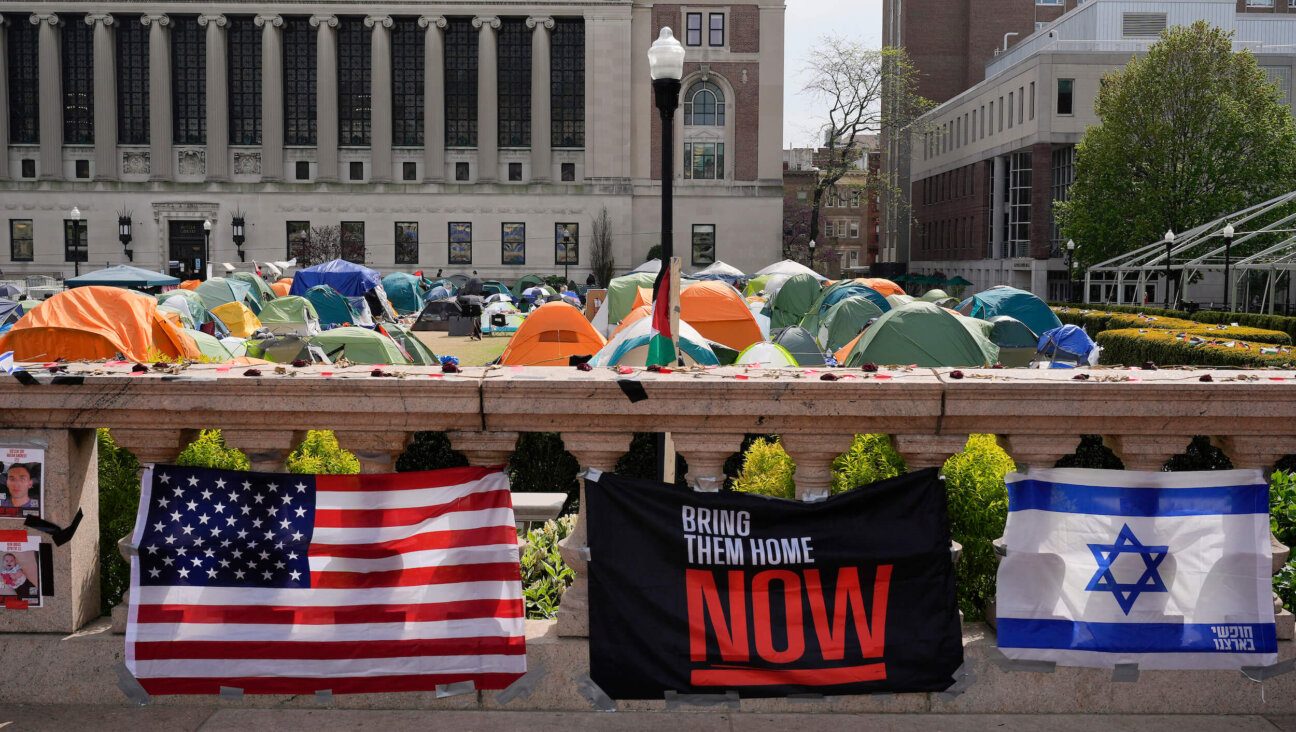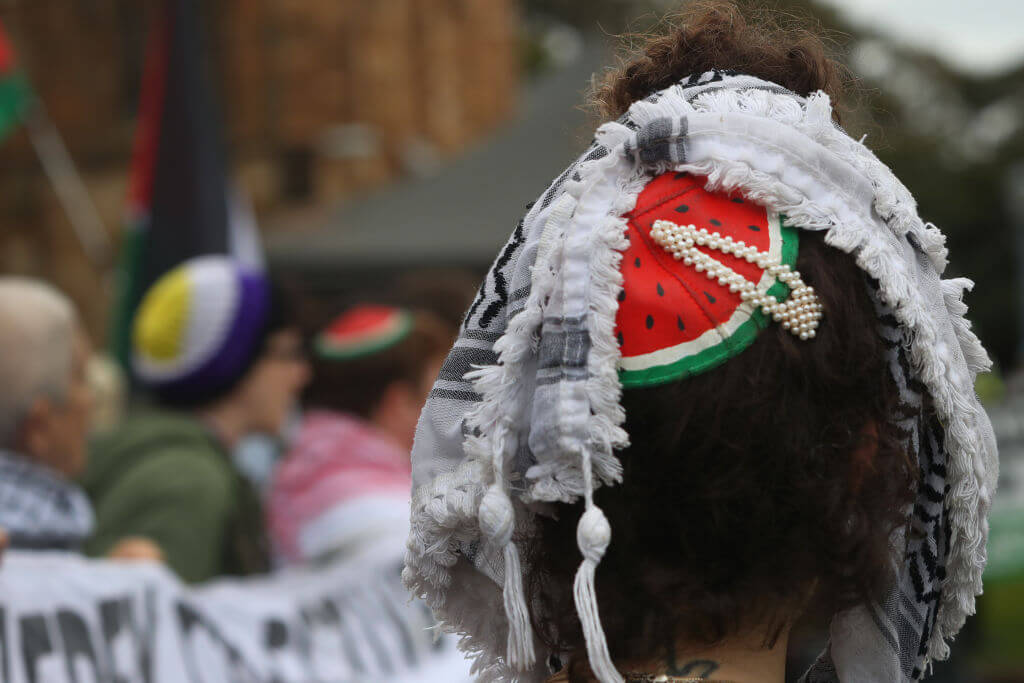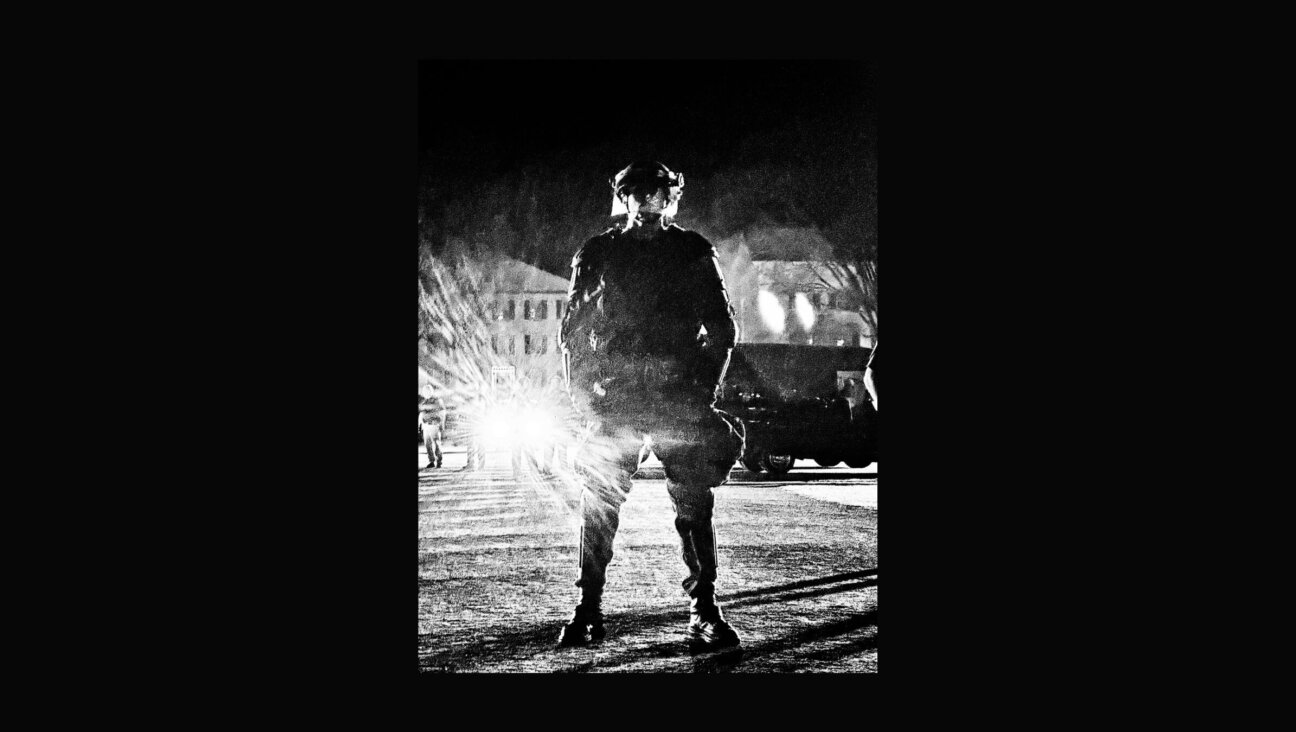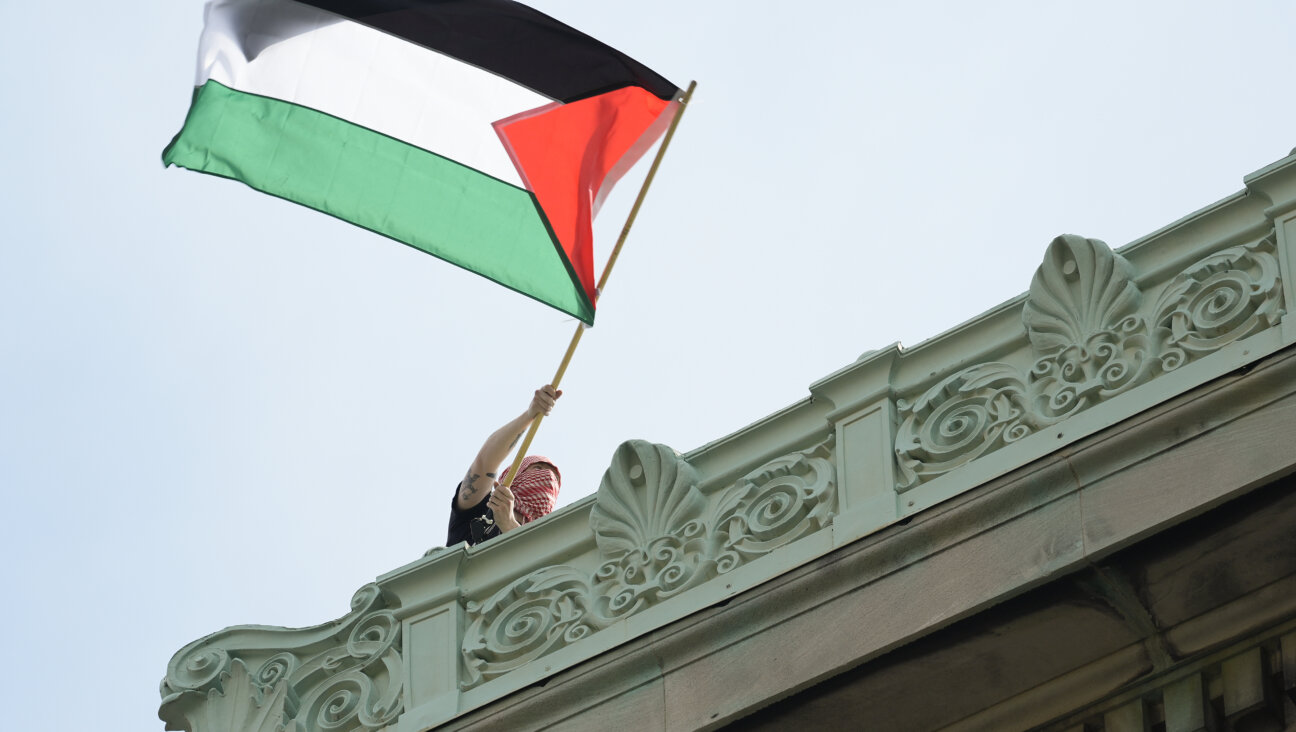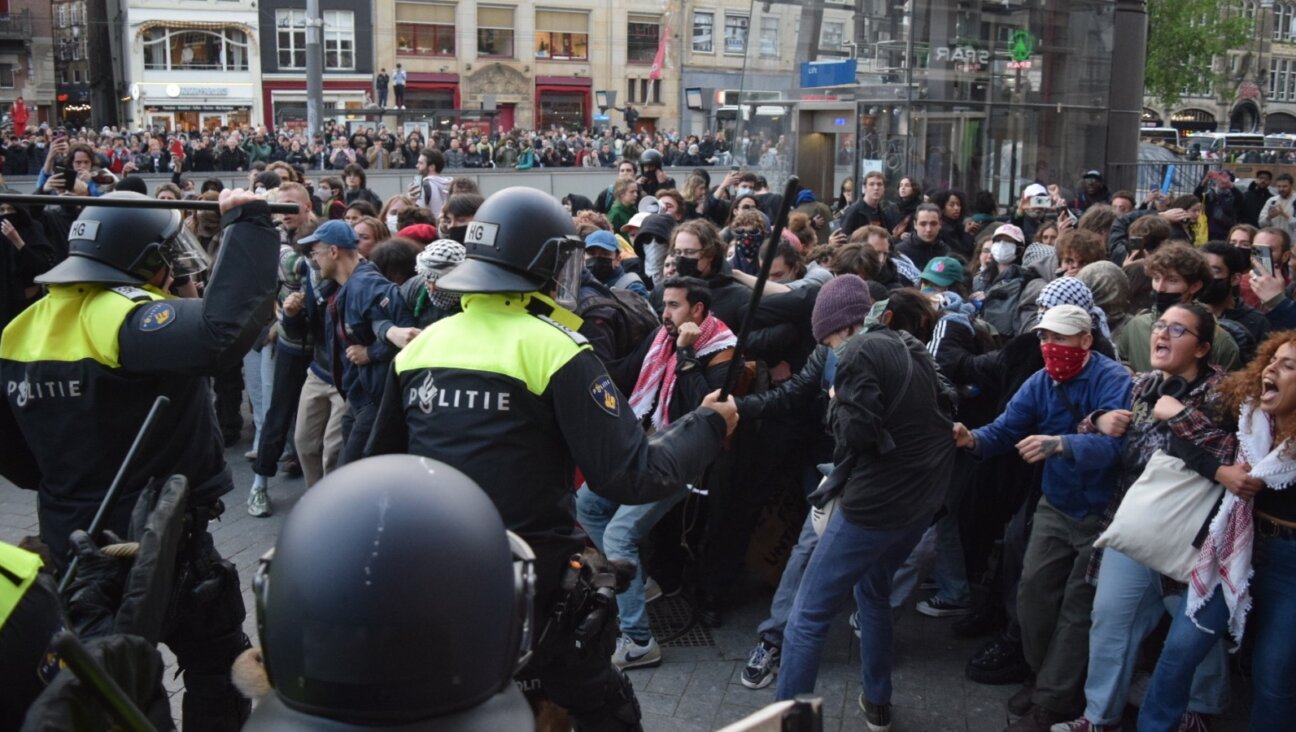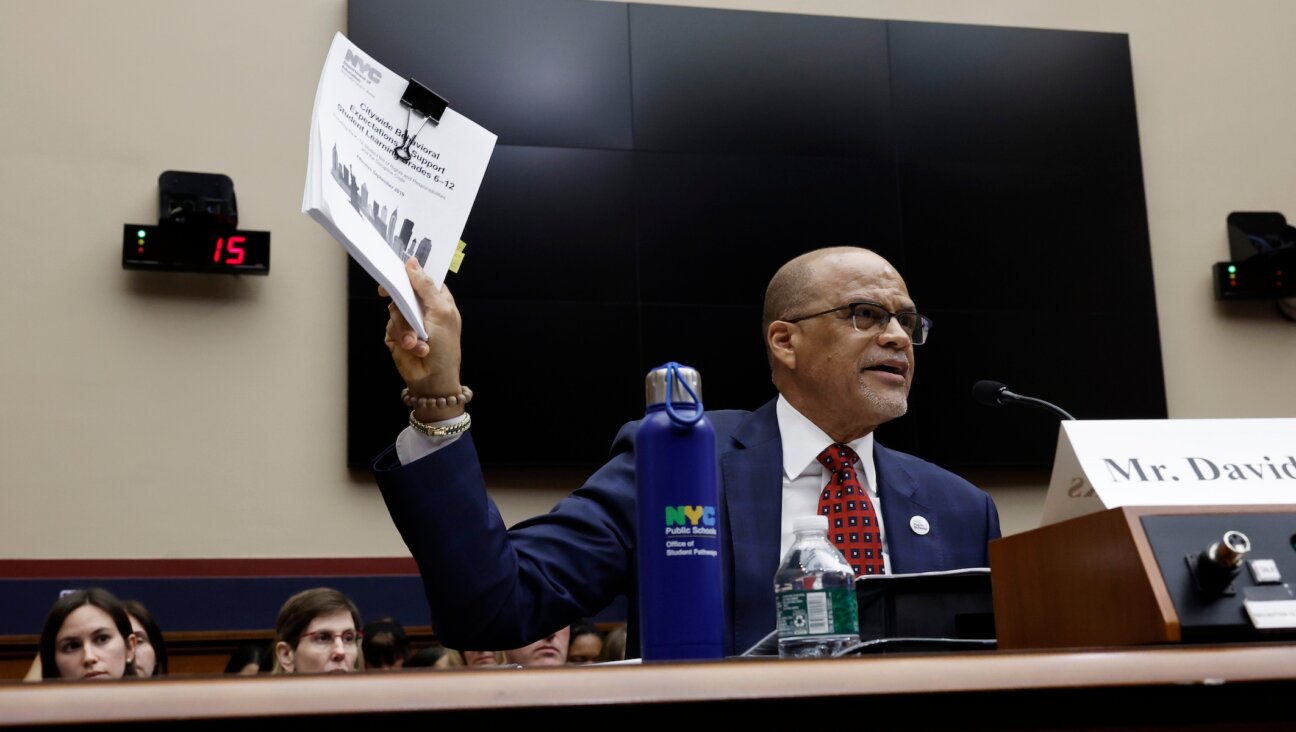You don’t have to be in New York to stand up for Israel’s democracy
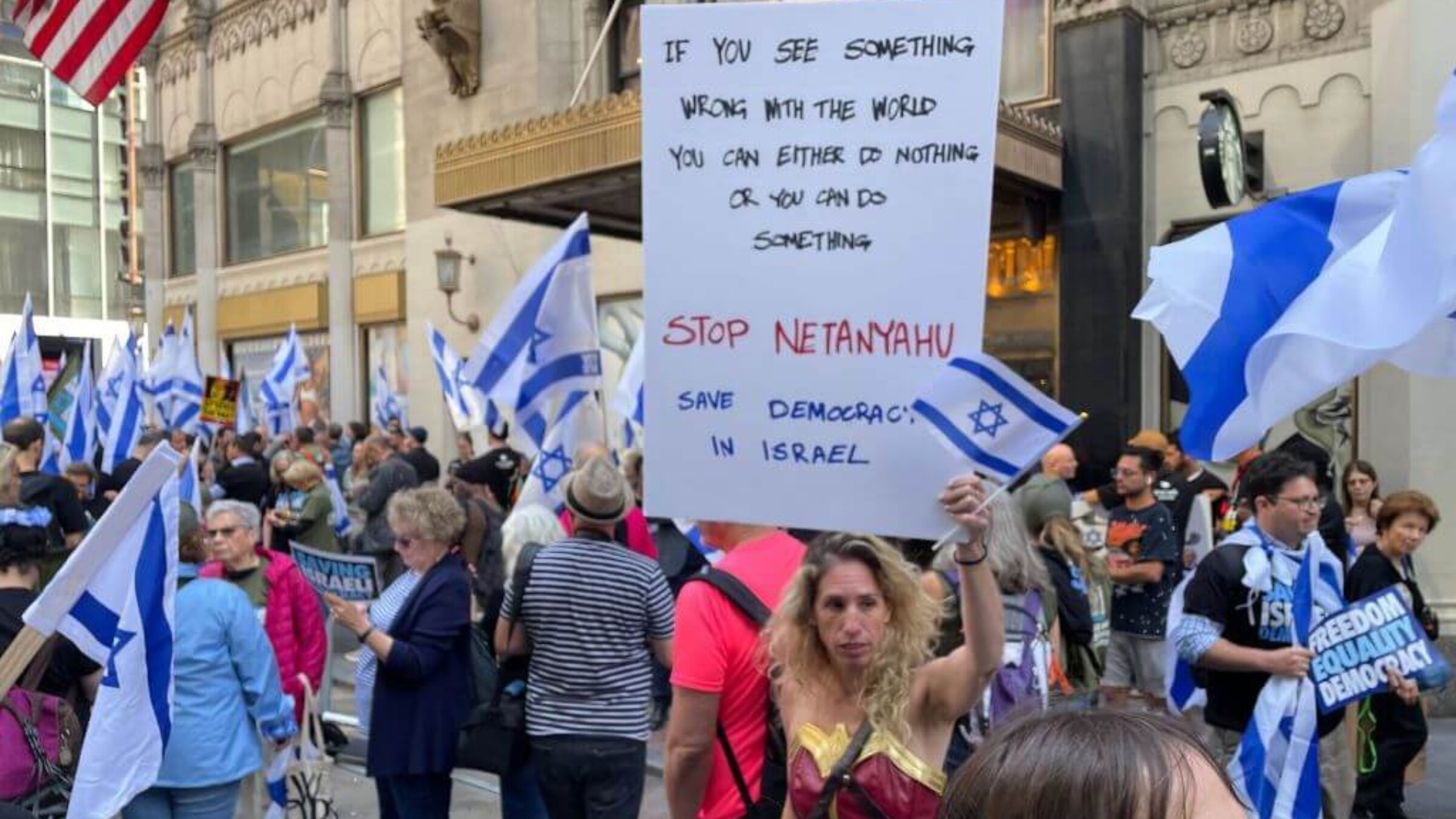
Protestors at an anti-Netanyahu protest in New York City, Sept. 20, 2023. Photo by Jacob Kornbluh
After three congregants and I escaped safely after being held hostage for 11 hours in our Texas synagogue last year, I learned how much of the Jewish world had been standing with us emotionally and spiritually throughout the ordeal. It gave me a new depth of understanding of the meaning of the Talmudic teaching, “Kol Yisrael arayvim zeh bazeh,” all Israel is responsible for one another.
And now it is my turn — our turn — to stand, emotionally and spiritually, with the Israelis who have been bravely protesting threats to their democracy all year.
Like so many in the diaspora, I have been distressed and increasingly frustrated since January at the attempts by Israel’s governing coalition to limit the powers of the Supreme Court. And, like so many in the diaspora, I have been inspired by hundreds of thousands of Israelis who have filled the streets each Saturday night to demand the proposed judicial overhaul be stopped.
While I was studying at the Shalom Hartman Institute this summer, I was proud to participate in two protests in Jerusalem, alongside Rabbi Gilad Kariv, a member of the Israeli Knesset, and the Israel Movement for Progressive Judaism. Like many passionate protesters, I long for the day when Israel is able to fully live up to the values expressed in its Declaration of Independence, to be a nation that will “ensure complete equality of social and political rights to all its inhabitants.”
We in the diaspora have heard from Israelis that this is a time of emergency — and it is. We have heard that we need to get involved — and we do.
This week, major protests are taking place in New York as the United Nations General Assembly convenes. For those of us who live and work in smaller communities — like Winston-Salem, North Carolina, where I now lead a Reform congregation of 290 households, or Colleyville, Texas, where the hostage-taking unfolded in January 2022 — it has been challenging to know how to get involved, how to show our support.
Because we love Israel, because we are responsible for one another, small communities and large ones, like those in Dallas, Miami and Chicago, all need to show our Israeli siblings that we care enough to stand up and demonstrate our solidarity. I am confident that many Jews in the U.S. and throughout the diaspora would do so when given the opportunity.
So let’s create that opportunity.
Sukkot is Z’man simchateinu – the time of our rejoicing. This year, let’s also make it “the time of our solidarity,” and welcome Israeli democracy into our sukkahs. Register here to host an event of any size in which you and your community can say clearly that you care about Israeli democracy.
It would be powerful any time during the week-long festival of Sukkot, which starts at sundown on Friday, Sept. 29. You can do it whenever and wherever you are gathering, in small communities or large, whether you bring three people or 3,000.
This is an action that any Jewish organization from any denomination — synagogues, Federations, campus Hillels and others – can take. It’s something that groups of families could do on their own.
You can create a new event devoted to this cause, or you can build an Israel-solidarity moment into a meal or program you are already planning to organize during Sukkot.
Bring Israeli flags. Teach the complexity of the situation. Chant and sing and bang on drums. Invite an expert to speak to your group, in person or via Zoom. Or do all of it.
Take pictures and share them widely on your social media and elsewhere (#SukkotSolidarity), so that Israelis — the government ministers and the protesters in the street — know that American Jews are engaged. Stand up. Be counted.
Now is the time to stand with Israel. Israelis have been protesting every week. It’s our turn to stand for a pluralistic Israeli democracy. It’s our turn to show we are responsible for one another.
When you register via this Google form, you connect your community with the larger community, you join “Kol Yisrael.” Before Israel’s Knesset reconvenes on Oct. 12, I will post the list on this Sukkot Solidarity 5784 document and share it with the news media. I will also send it to Prime Minister Benjamin Netanyahu and other leaders of his governing coalition, leaders of the protest movement, and key U.S.officials. I will share it as widely as possible, and will urge you to do the same.
Every Israeli official, every Israeli citizen, every politician in Washington needs to know that we in the diaspora love Israel, that our lives are intertwined with Israel, and that we stand with those who are struggling to save Israel’s democracy. That Kol Yisrael arayvim ze bazeh — we are all responsible for one another.
To contact the author, email [email protected].

I hope you appreciated this article. Before you go, I’d like to ask you to please support the Forward’s award-winning, nonprofit journalism during this critical time.
Now more than ever, American Jews need independent news they can trust, with reporting driven by truth, not ideology. We serve you, not any ideological agenda.
At a time when other newsrooms are closing or cutting back, the Forward has removed its paywall and invested additional resources to report on the ground from Israel and around the U.S. on the impact of the war, rising antisemitism and the protests on college campuses.
Readers like you make it all possible. Support our work by becoming a Forward Member and connect with our journalism and your community.
Make a gift of any size and become a Forward member today. You’ll support our mission to tell the American Jewish story fully and fairly.
— Rachel Fishman Feddersen, Publisher and CEO
Join our mission to tell the Jewish story fully and fairly.







